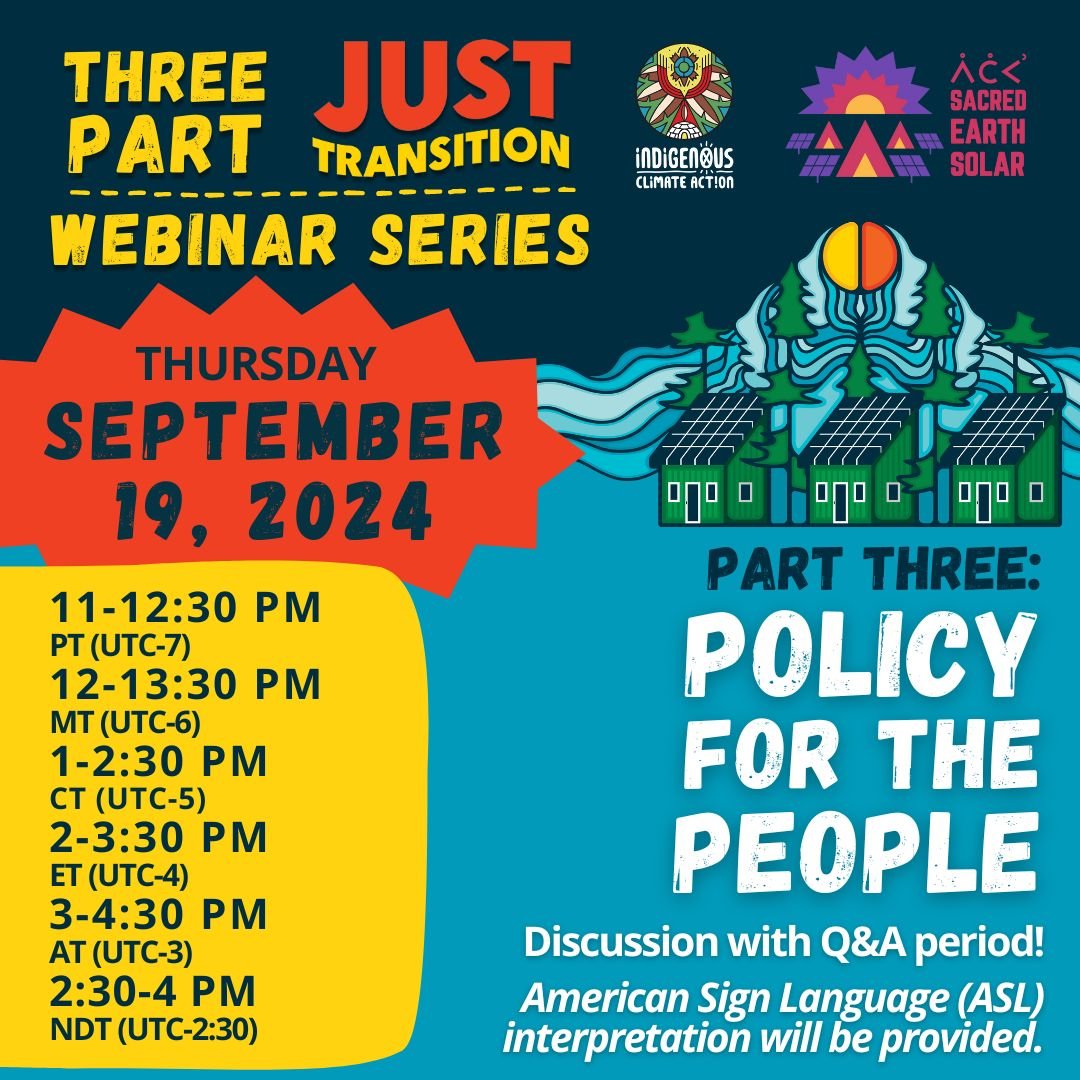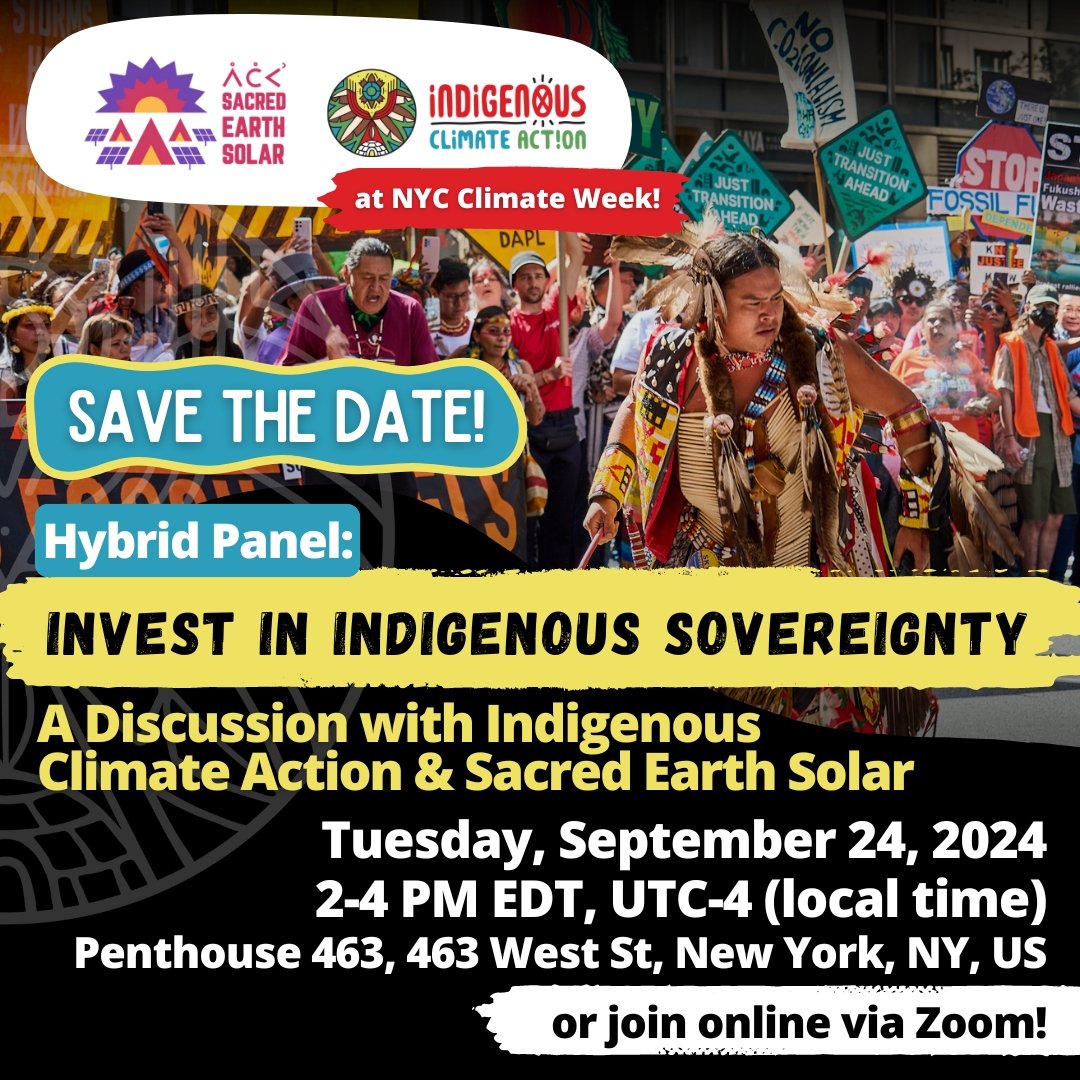
Noticias + Blog
Blog: El beneficio por encima de las personas: cómo la conciliación económica amenaza la justicia climática
The co-optation of words like “reconciliation” to create a false sense of progress from colonial states like Canada is not lost upon us. If we were to meaningfully engage with “reconciliation” in the context of the economy, it needs to be led by Indigenous peoples, and requires true, systemic change. This then begs the question of… is Canada even capable of economic reconciliation with Indigenous communities?
WATCH | Serie de seminarios web JT en 3 partes: Tercera parte - Política para el PUEBLO
Watch Part 3 of our 3-Part Just Transition Webinar Series: Policy for the PEOPLE
WATCH | Serie de seminarios web JT en 3 partes: Segunda parte: Mantener la limpieza
Watch Part 2 of our 3-Part Just Transition Webinar Series: Keepin' It Clean
¡Inscripciones ABIERTAS! Invertir en la soberanía indígena: Un panel híbrido en la Semana del Clima de Nueva York 2024
Join us Tuesday, September 24, 2024 for hybrid panel discussion: Invest in Indigenous Sovereignty. This panel will explore lessons learned from Indigenous activists and land defenders, and will explore how we can take knowledge and apply it toward advancing Indigenous-led divestment in relation to global climate action.
WATCH | Serie de seminarios web JT en 3 partes: Primera parte: Cómo poner el "justo" en la transición justa
Watch Part 1 of our 3-Part Just Transition Webinar Series: How to Put the "Just" in Just Transition
Registrations OPEN for our Just Transition Webinar Series!
Registration for our Just Transition Webinar Series, hosted THURSDAYS, September 5, 12, & 19, 2024, are NOW OPEN!
Aviso a los medios: Organizaciones indígenas lanzarán una guía de transición justa dirigida por indígenas
COMUNICADO DE PRENSA | Lanzamiento de la Guía de la Transición Justa
Justice is Critical for the Transition off Fossil Fuels
Although the principles of a Just Recovery offer some hope that the network pushing for climate solutions appreciates the importance of involving Indigenous leadership - and the leadership of other racialized and structurally oppressed people - we will remain cautious in our optimism for change within colonial structures and continue to work with members of our communities who are implementing climate solutions on the ground.












